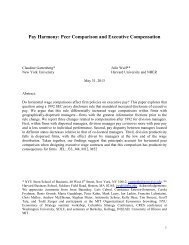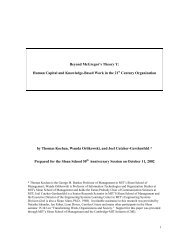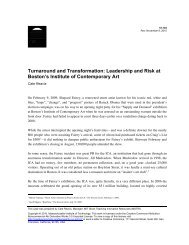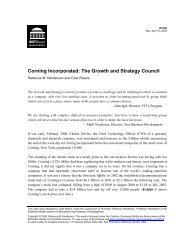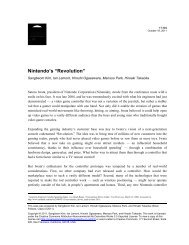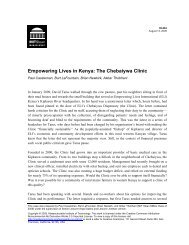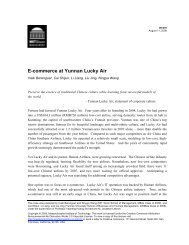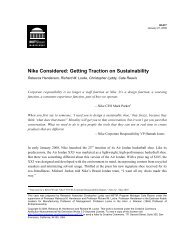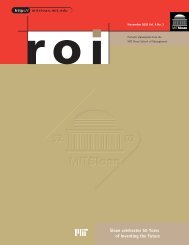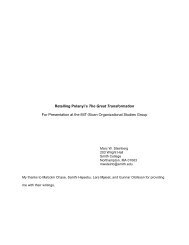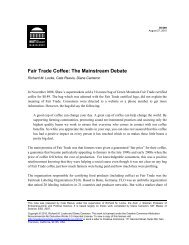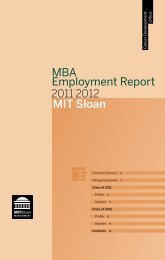Understanding earnings quality - MIT Sloan School of Management
Understanding earnings quality - MIT Sloan School of Management
Understanding earnings quality - MIT Sloan School of Management
You also want an ePaper? Increase the reach of your titles
YUMPU automatically turns print PDFs into web optimized ePapers that Google loves.
to suffer from omitted correlated variables problems. A significant portion <strong>of</strong> the cross-sectional<br />
variation in ERCs or variables related to properties <strong>of</strong> <strong>earnings</strong> (e.g., timely loss recognition and the<br />
likelihood <strong>of</strong> reporting a loss used in Francis and Wang, 2008) comes from the ability <strong>of</strong> the<br />
accounting system to capture the firm’s fundamental <strong>earnings</strong> process and not from the controllable<br />
and auditable dimension <strong>of</strong> <strong>quality</strong>. Hence, while the empirical evidence in studies that use ERCs or<br />
properties <strong>of</strong> <strong>earnings</strong> as proxies for EQ are consistent with the predicted positive relation between<br />
auditor effort and <strong>earnings</strong> <strong>quality</strong>, the studies must deal with substantial concerns about alternative<br />
explanations for results, including auditor self-selection and omitted correlated variables.<br />
A notable underrepresented element <strong>of</strong> the literature is studies that recognize the important<br />
roles <strong>of</strong> entities other than auditors, such as actuaries, that can interact with the auditor to affect the<br />
<strong>earnings</strong> <strong>quality</strong> outcome (Gaver and Paterson, 2001). Likewise, there are entities other than<br />
auditors that have a similar role in the financial reporting process, and thus may affect <strong>earnings</strong><br />
<strong>quality</strong>, although research in this area is limited. Morsfield and Tan (2006) document that IPO firms<br />
backed by venture capitalists exhibit lower discretionary accruals than other IPO firms in the IPO-<br />
year. Jo, Kim, and Park (2007) document that SEOs that have underwriters with higher reputations<br />
are associated with lower discretionary accruals than other SEOs. Studies also suggest that<br />
institutional investors affect EQ (Bushee, 1998), but the motivation is different. Institutions are<br />
predicted to affect EQ because <strong>of</strong> their anticipated information demands, not because they are<br />
directly involved in the financial reporting process.<br />
5.5 Capital market incentives as determinants <strong>of</strong> <strong>earnings</strong> <strong>quality</strong><br />
The papers in this section discuss how capital market incentives influence firms’ accounting<br />
choices and hence are potential determinants <strong>of</strong> <strong>earnings</strong> <strong>quality</strong>.<br />
108



